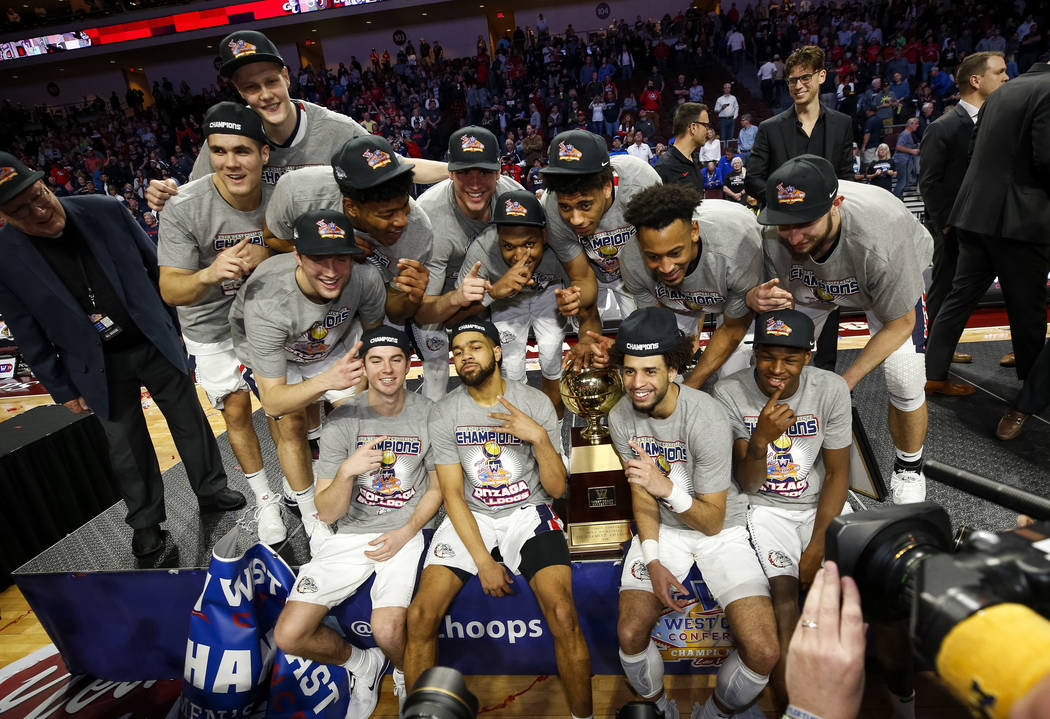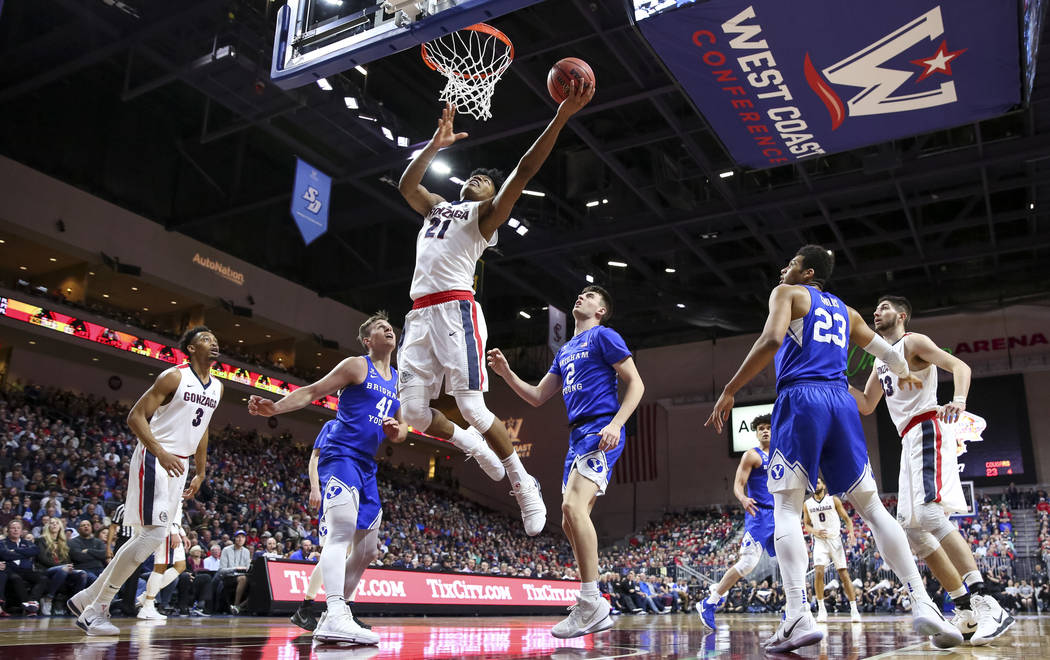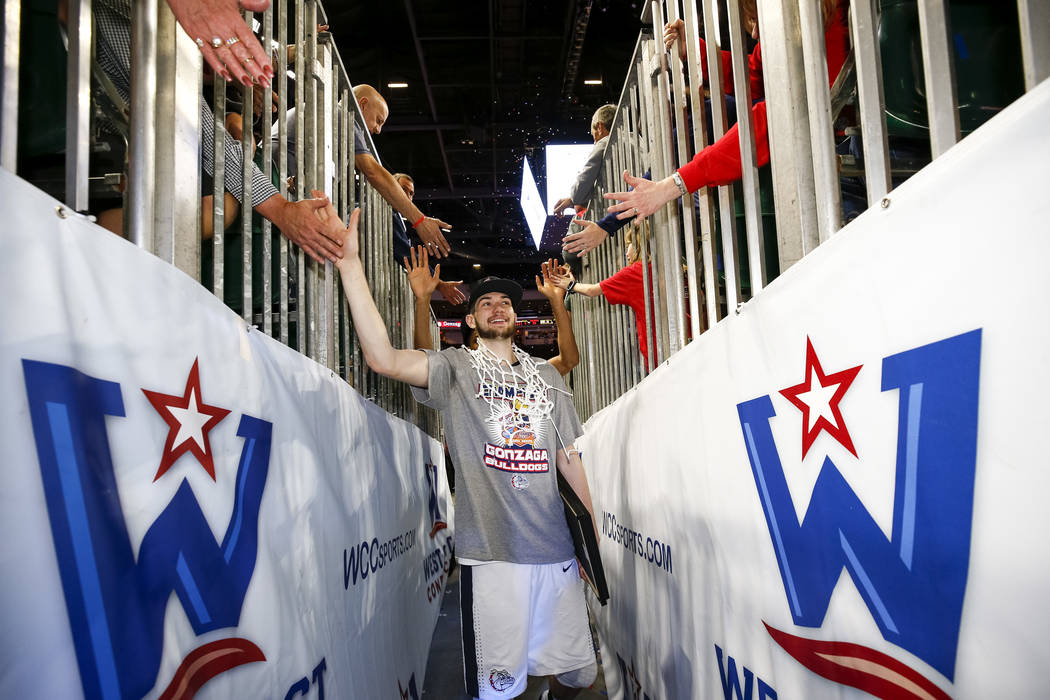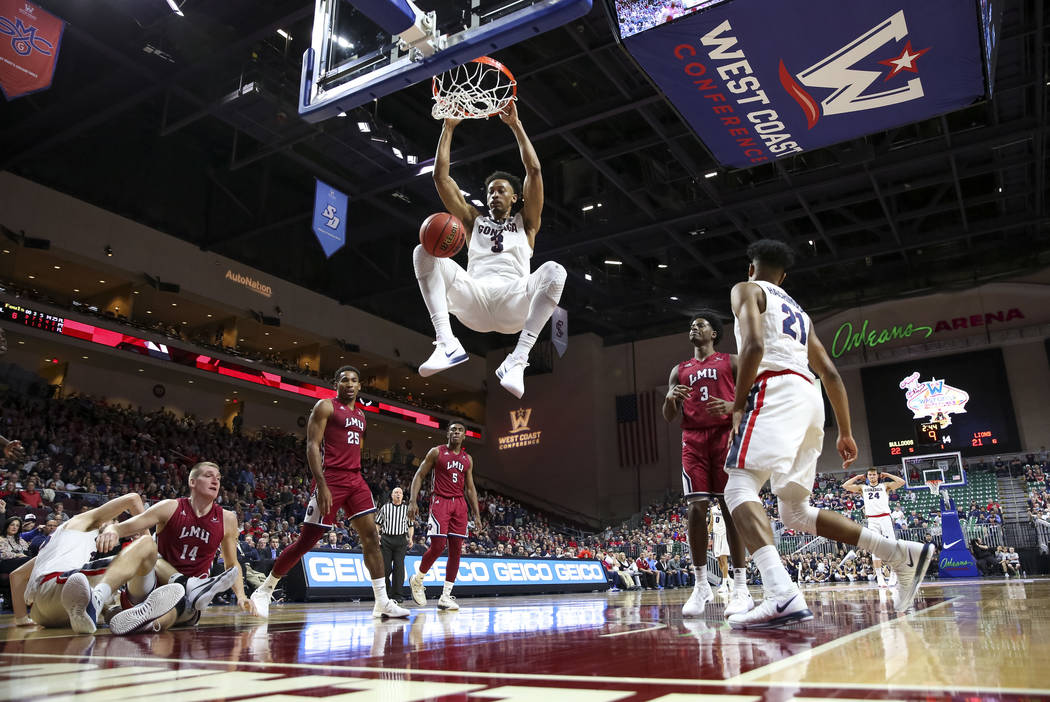Don’t blame Mountain West for trying to lure Gonzaga
SAN ANTONIO — It is no different than any merger, meaning leverage is often the determining element as to which side will benefit most.
Gonzaga owned the lion’s share when it came to this whole leaving the West Coast Conference for the Mountain West scenario, but that doesn’t mean the league in which UNLV exists shouldn’t have made the effort.
Another season of college basketball came and went and Villanova is your national champion, the result of its 79-62 victory over Michigan on Monday at the Alamodome, culminating a five-month period for the sport defined by more scandal than Marc-Andre Fleury’s favorite soap opera might offer in a week.
And while it certainly didn’t create the sort of scintillating headlines that FBI arrests and shoplifting charges in China did — a good thing — the idea that Gonzaga was ready to jump from the WCC more than piqued interest nationally.
Such a relocation has been put on hold, at least for now, with the Zags announcing they will remain in the WCC.
On its face, the move made sense for both sides. The Mountain West, despite recent slippage in being a one-bid NCAA Tournament league two of the past three seasons, is a better overall basketball conference than the WCC. It would have allowed Gonzaga more quality league games, in turn not damaging its RPI as much, in turn potentially helping its NCAA seed line. That’s a tangible reason for leaving the WCC.
Here’s an intangible one: “We just could never generate any real, consistent, offensive rhythm, and that’s because of their length and their athleticism, and their aggressiveness and their switching. … I mean, the more I watched them (on tape), I got a bad feeling in my stomach.”
That was Gonzaga coach Mark Few after his team lost to Florida State 75-60 in the Sweet 16.
Point being: The Bulldogs don’t see those type of athletes in the WCC to always prepare them for March.
They would in the Mountain West.
But the WCC, realizing a weak conference after its top few teams would become completely irrelevant without the Zags, opened the coffers and bowed at Gonzaga’s feet with other allowances.
The Bulldogs over the next seven years will reportedly receive $1.2 million annually in back pay for NCAA Tournament credits, along with an increase in shared money, and now can schedule two additional nonleague games, the latter a result of the WCC decreasing its conference schedule to 16 so that Gonzaga’s RPI isn’t hurt as often playing the Pepperdines of the world.
Oh, yeah. The WCC also will advance its top two teams into the semifinals of the league tournament.
Sweet deal, is right.
But good for the Mountain West taking a hard pass on any such concessions. The league wrongly went down this road before when, falling over itself in 2012 to keep Boise State and its football team from jumping to the Big East Conference, leveraged far too much when guaranteeing the Broncos an annual windfall of near $1 million through TV contract bonuses.
In this sense, the Mountain West miserably failed its other members.
So while it wasn’t going to repeat the same mistake with Gonzaga, the idea it got played is silly.
What, the Mountain West, when hearing the Zags were shopping themselves, wasn’t supposed to inquire about perhaps landing one of the nation’s elite basketball programs? Even if this was all about Gonzaga simply wanting a better deal from the WCC, you have to engage in talks. You have to negotiate. You have to see if a fair deal for both sides can be made.
I’m not convinced it’s over, anyway.
Let’s see exactly who, in an age when NCAA berths are more and more going to Power 5 programs that have little incentive to play at Gonzaga, the Zags get for those two additional nonleague games. Let’s see how they react if it keeps taking 30 wins just to be a 4 seed. Let’s see where everyone sits when the Mountain West’s TV deal expires in 2020.
It didn’t happen this time.
It wasn’t wrong for the Mountain West to try.
You move on.
For now.
Contact columnist Ed Graney at egraney@reviewjournal.com or 702-383-4618. He can be heard on “The Press Box,” ESPN Radio 100.9 FM and 1100 AM, from 11 a.m. to 2 p.m. Monday through Friday. Follow @edgraney on Twitter.


























